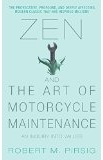


 |
 |

|
In a similar vein we can examine progress in terms of absolute and relative. Consider the three characteristics that I was using to determine progress – anatta (no self), anicca (permanence) and dukkha (suffering). Anatta makes absolute progress as individuals through the development of zen mind, anicca was a consideration of timeless truth and dukkha was a measure of suffering. How does progress fit in with this? How does the progress that we measure in society fit in with this?
This brings me to a fascinating absolute question, can there be absolute progress? And with that starts to question the Boddhisattva vow? The absolute question revolves around the notion as to whether all people can attain awakening or whatever enlightenment is supposed to be – I don’t look at the word “enlightened” as I feel it is a word that can only be described by those who experience it. Absolute achievement would be that all people attain enlightenment but is that possible? Is that ever meant to be? Absolute progress would have to be some form of assessment as to whether society is moving towards this absolute enlightenment.
Are there any indications historically that more and more people have the potential for enlightenment? Are more people meant to be enlightened? Are we all ever meant to be enlightened? If ever there is an unanswerable question this is it. This contains within itself the necessity of being in God’s mind, the kamma of Idapaccayata etc.
My own feelings are that this is not meant to be, and dukkha is my reason. The Buddha spoke of the 4 Noble Truths, it was something that some consider is unique to him. In it he talks of dukkha as existing, and how individually we can overcome that suffering. He does not speak of “whilst there is suffering”, but that there is suffering. This implies to me that suffering is always – a characteristic of existence, there is always going to be suffering, and whilst individuals can awaken and maybe get to “enlightenment” (whatever that is), but for all to do that is not consistent with there being suffering. So is there ever meant to be enlightenment for all? Is there ever meant to be absolute progress on the way to total enlightenment? With suffering existing it appears it is not meant to be?
If suffering is meant to be, can we ever make progress on suffering?
So in terms of absolute progress we cannot know whether there is meant to be enlightenment for all because there is suffering. And we cannot know whether suffering for all is meant to decrease. If we look at Pirsig’s brief assessment in that quote on dukkha then and now, he describes a change in suffering. His progress assesses that the suffering in daily life experienced by hunter-gatherers is worse than the suffering of those in the world of wars for profits. Today I question whether any Syrian would agree, that is my feeling – assessment, that suffering is worse now. But I have no suffering-meter to measure, it is a personal judgement – as is Pirsig’s.
If we cannot measure suffering and we cannot know whether there is meant to be absolute progress towards total enlightenment, then can we measure absolute progress? We cannot measure progress in what matters.
But we can consider relative progress, progress in daily life. It is sad to think there cannot be all being free from suffering, take a moment that is deeply saddening.
| Summary | First | Previous | Next |